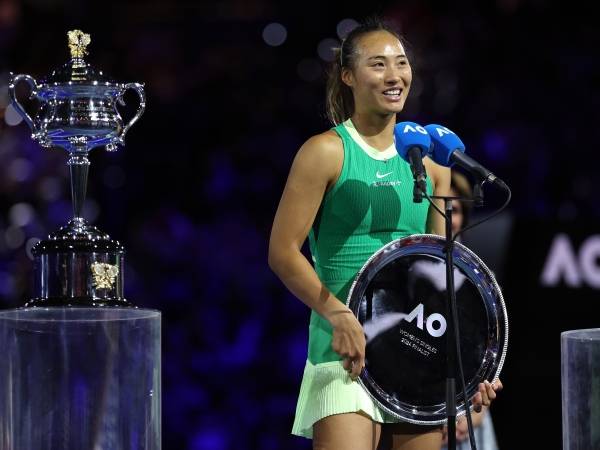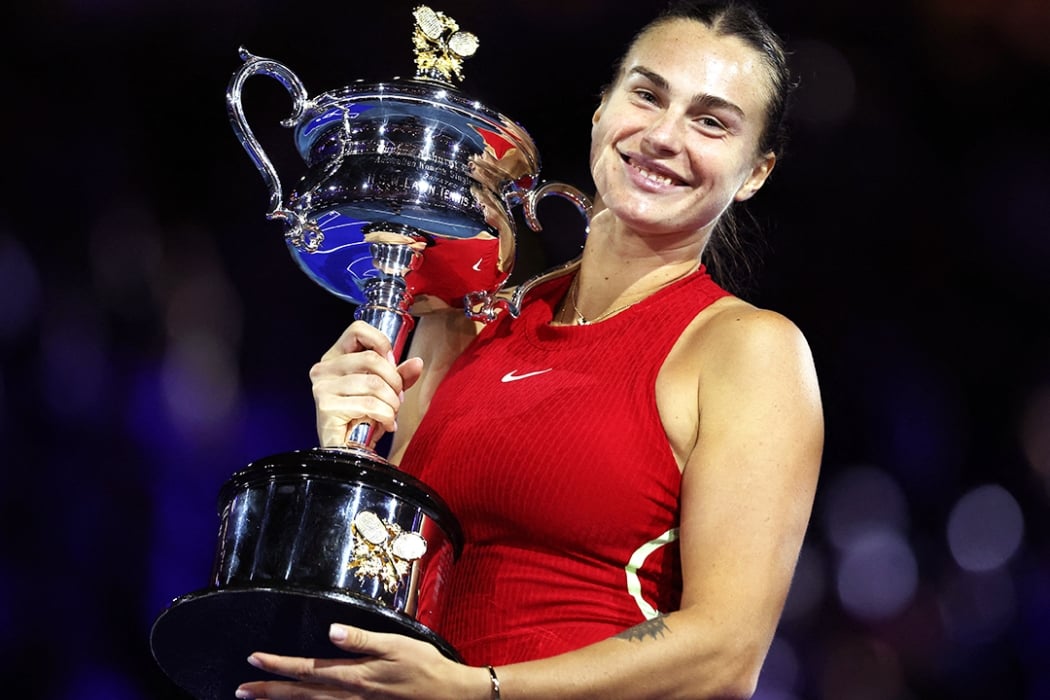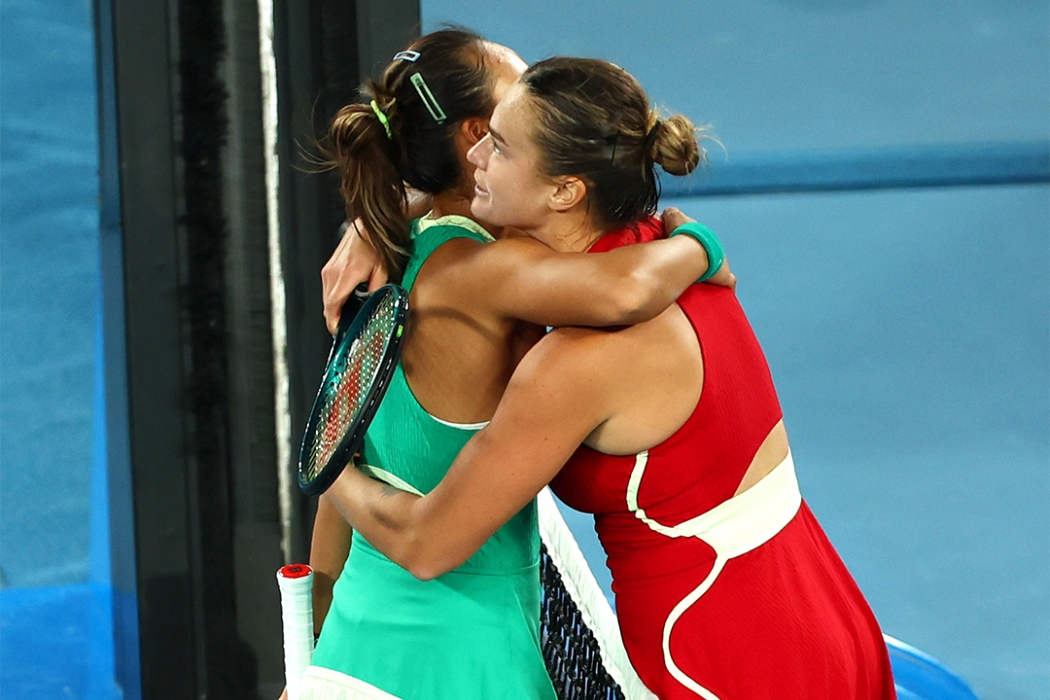There is a Chinese saying that loosely translates to: “The flowers will open in the spring.”
It highlights a need for patience, something that Zheng Qinwen finds initially difficult to accept in light of defeat in her first major final.
MORE: Sabalenka v Zheng match stats
Charming and an explosive shot-maker, Zheng has the world at her feet. She had dreamt of standing on this stage since age eight, when she watched on television as Li Na reigned at Melbourne Park a decade ago.
China has waited for a major champion ever since. That wait continued after reigning champion Aryna Sabalenka ended the 12th seed’s run at Rod Laver Arena in just 76 minutes.

“Yeah, actually it is difficult, you know. Also, maybe I have to work more on my tennis, also work more on my mental side, work more on myself to be able to (get) through this moment,” Zheng said.
BONUS: Download your copy of the Australian Open 2024 Official Program
“Because if you lose, there must be reason behind why you lose, and we have to try to figure out why and then come back stronger and better next time.”
At just 21, time is on the burgeoning star’s side despite coming up short.
Zheng need only look to her countrywoman, former world No.2 Li, for a glowing example of perseverance.
Li was almost 29 when she finally broke through at Roland Garros in 2011 before she doubled her haul at Melbourne Park three years later. Li, too, lost her first major final at Rod Laver Arena in 2013.
MORE: AO 2024 women's singles draw
Only the second Chinese player to contest a major singles final, Zheng was facing her first top-50 opponent all tournament on Saturday night.
It was a marked step up. Earlier in the event, Zheng vowed she would not be as overawed as when she and Sabalenka previously met, in her maiden Grand Slam quarterfinal final in New York when she also salvaged five games.
The stakes were considerably higher second time round on Saturday night against a woman riding a 13-match winning streak at Melbourne Park.
Any hopes Sabalenka would be racked with nerves in her first major final since Coco Gauff snatched victory from the jaws of defeat in last year's US Open decider came down to the final game of the match.
Despite the second seed’s momentary wobble as she attempted to serve it out, Zheng ultimately could not sustain the pressure.
“I would say first of all to play against her I think is so important to hold your own service game, because she had a really good serve,” she said. “But I couldn't do that, especially the beginning, I was 0-2 down.
“I mean, she's obviously aggressive, but yeah, I have to hold more the ball of her, and in the same time be the same aggressive like she is.
“And today's match, I didn't perform my best. That's really pity for me, because I really want to show better than that.”
The relentless weight of shot from her opponent and of the expectation on Zheng’s shoulders compounded the outcome.
This was Sabalenka at her ruthless best and while overwhelmed, Zheng left with positives from just her ninth Grand Slam main draw.
On Monday, she will make her top-10 debut, the first Chinese player since Li a decade ago.
“I would say there is lot of difficult matches for me on the way, and I'm able to hold that difficult moment and trying to win the match even [though] I wasn't playing my best tennis, I wasn't feeling that good there,” Zheng said.
“Actually, I think I can learn more with the loss today, and then I just hope next time I can come back as a better tennis player and come back stronger.”

